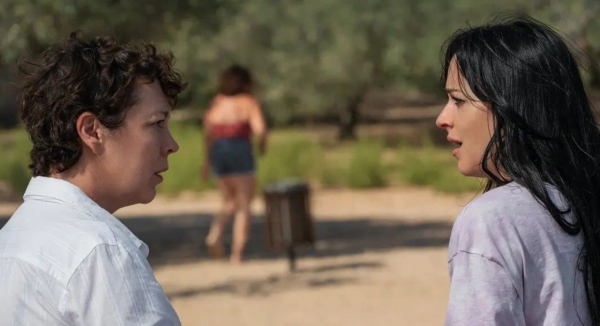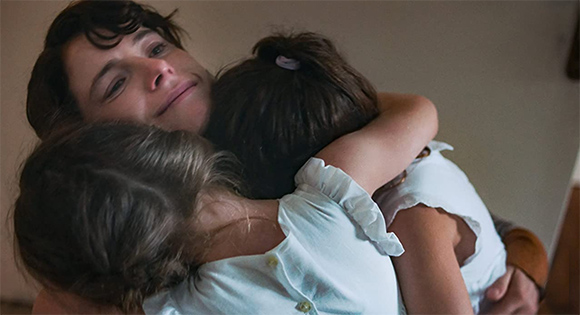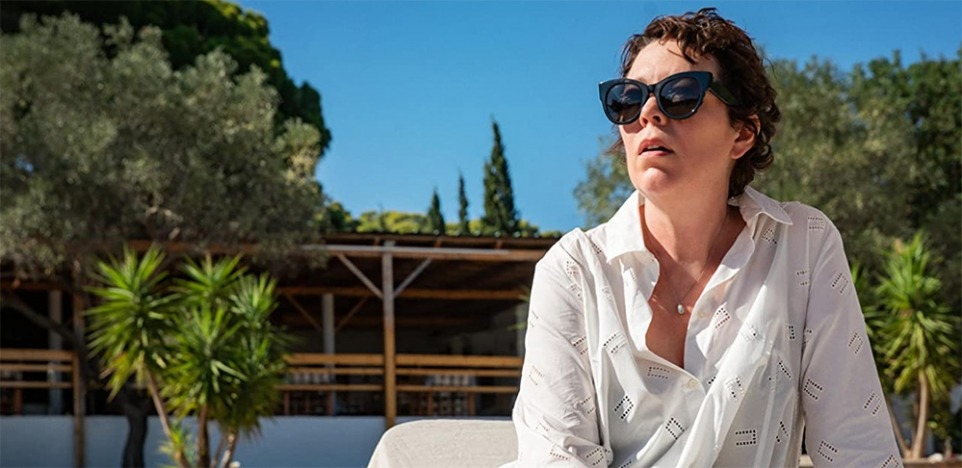"The hardest things to talk about are the ones we ourselves cannot understand" is a truth we all carry inside us. These poignant sentences are from The Lost Daughter, a 2008 novel by Elena Ferrante which is filled with haunting, painful, inexplicable, and often-shocking insights about mothers, daughters, childhood, parenting, family, and work. Now Maggie Gyllenhaal has adapted the novel for the screen; the film also marks her directorial debut.
Leda (Olivia Coleman) is a middle-aged English professor of Italian literature. She has two grown daughters who live far away. Seeking a peaceful and restorative vacation, she arrives in a small resort on the Greek coast.
Although she wants to spend her time alone, two men show an interest in her -- the caretaker (Ed Harris) at the resort and a young beach attendant (Paul Mescal). Even more intrusive are a series of incidents that chomp away at her dreams of calm: a nearby foghorn disturbs her sleep; she discovers the fruit in her room is spoiled; a large bug invades her bedroom and rests on her pillow; and a pine cone falls from a tree leaving a bruise on her back.

Most irritating is the loud and boorish American family that arrives by boat and immediately takes over the beach. Although she tries to read and relax, she finds herself entranced by the activities of Nina (Dakota Johnson), a beautiful young mother, and her daughter Elena (Athena Martin Anderson), who has frequent crying fits and temper tantrums.
Clearly, motherhood is not what Nina expected, and Leda, we learn, can empathize. When another woman (Dagmara Dominczyk) in the American group, who is pregnant, inquires about Leda's children, she states bluntly: "Children are a crushing responsibility."

Leda's encounters with the new arrivals enable her to recall her own conflicted feelings, unhappiness, and loneliness as a young mother. It was all so exhausting. In flashbacks, the younger Leda (Jessie Buckley) yearns to escape the mother role and after an affair, she abandons the children, an action that still haunts her. Her need to make up for failing to nurture her girls is symbolized by all the attention she gives to a doll that Elena lost at the beach.
Maggie Gyllenhall as writer and director of this sober drama proves able to deal with how events past and present shape our souls and force us to confront our shadow -- the parts of ourselves we would rather not face, including the our unpleasant memories of bad behavior in our past and our selfish and violent impulses. The Lost Daughter becomes a spiritual teaching about how to name our demons, learn from them, and work through them.
